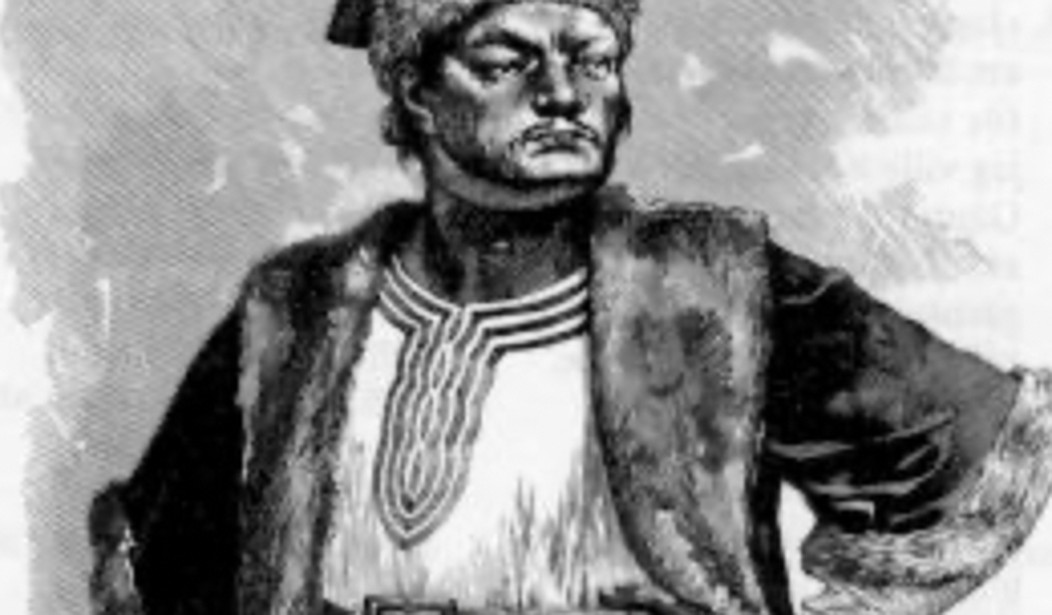History has always been a pet hobby of mine, and today I want to explore Attila the Hun.
It is a name that has continued to capture the imagination and fear of Europe for centuries, just like Genghis Khan and the Mongols, to the point that the Huns have been invoked in anti-British sentiment among the Irish and anti-German attitudes during World War I.
It wasn't for nothing that Attila was called "the Scourge of God." He devastated the Eastern Roman Empire and invaded Gaul (modern France) in the mid-400s AD before being defeated at the Catalaunian Plains in 451 by a combined force of Roman General Aetius and Visigoth King Theodoric I (who inspired King Theoden in "Lord of the Rings").
So, what do we know of Attila and the rest of the Huns?
In the grand scheme of things, basically squat.
We certainly know what Attila and his brother Bleda did starting around 434, when they inherited their uncle Rua's kingship. The two helped Aetius (with whom they were initially allied) take down the Burgundians but were turned back in a battle with the Goths.
Between 435 and 441, they hacked out a deal with the Eastern (Byzantine) Roman Empire, where Attila and Bleda were to receive a tribute of 700 pounds of gold every year (somewhere between $20-$30 million in today's money).
But apparently, either because that wasn't enough dough or they just saw an opportunity (or maybe just for a laugh), Attila and Bleda launched a massive attack on the Eastern Empire's Danubian frontier, razing Constantia and Singidunum (now Belgrade) since the Romans were busy fighting the Vandals in Sicily
Eastern Roman Emperor Theodosius II was able to pull his men out of Italy the following year, so Attila himself pulled back for the time being, only to start back up in 443. He whacked Bleda in 445, and continued fighting Theodosius's forces until 449, when the Eastern Romans signed a new treaty where they would pony up 2100 pounds of gold (around $70 million) to Attila a year, supposedly because it was actually cheaper than continuing to fight him.
You would think Attila figured he was set for life and hung up the sword at this point, but he figured, "Why not invade Gaul?"
This decision might have had something to do with Western Roman Emperor Valentinian III's sister Honoria wanting his help getting out of an arranged marriage, which he supposedly took as a come-on. He wanted Honoria to be one of his wives, but she didn't want it and ended up marrying the suitor she was set up with, so off to Gaul he went.
The Romans turned to Aetius to defeat the Huns, so he teamed up with Theodoric I to do just that around the same year at the Catalaunian Plains (somewhere near Chalons or Champagne).
Legend has it Pope Leo I convinced Attila not to attack Rome herself on his way back from France in 452, saying outside the gates:
The people of Rome, once conquerors of the world, now kneel conquered. We pray for mercy and deliverance. O Attila, you could have no greater glory than to see suppliant at your feet this people before whom once all peoples and kings lay suppliant. You have subdued, O Attila, the whole circle of the lands granted to the Romans. Now we pray that you, who have conquered others, should conquer yourself. The people have felt your scourge. Now they would feel your mercy.
Attila was back East in 453, intending to fight Theodosius II's successor, Marcian, since he was refusing to pay the tribute money agreed on a few years before under Theodosius.
Before he could, Attila died under mysterious circumstances while celebrating his marriage to a girl named Ildico. Whether or not a nosebleed in his sleep caused it or she killed him is a matter of debate.
A lot, actually, is up for debate about Attila specifically and the Huns as a whole.
We have no idea where or when he was born or where he is buried.
We have no idea what the Huns' language was like or where exactly they were from prior to around 370 when they showed up in Eastern Europe, although Kazakhstan is thought to be their homeland. There has also been a persisting theory that they are connected to a people the ancient Chinese called the Xiongnu (which is evidently why the bad guys in Disney's Mulan are called the Huns).
So, with that in mind, the fact that early Christians considered Attila to be divine punishment from God for the sins of Rome just enhances his epithet, "the Scourge of God," that much more.
How else would you describe a mysterious tribe of vicious horsemen under a fearsome leader who devastated the breadth of a mighty empire in about twelve years?










